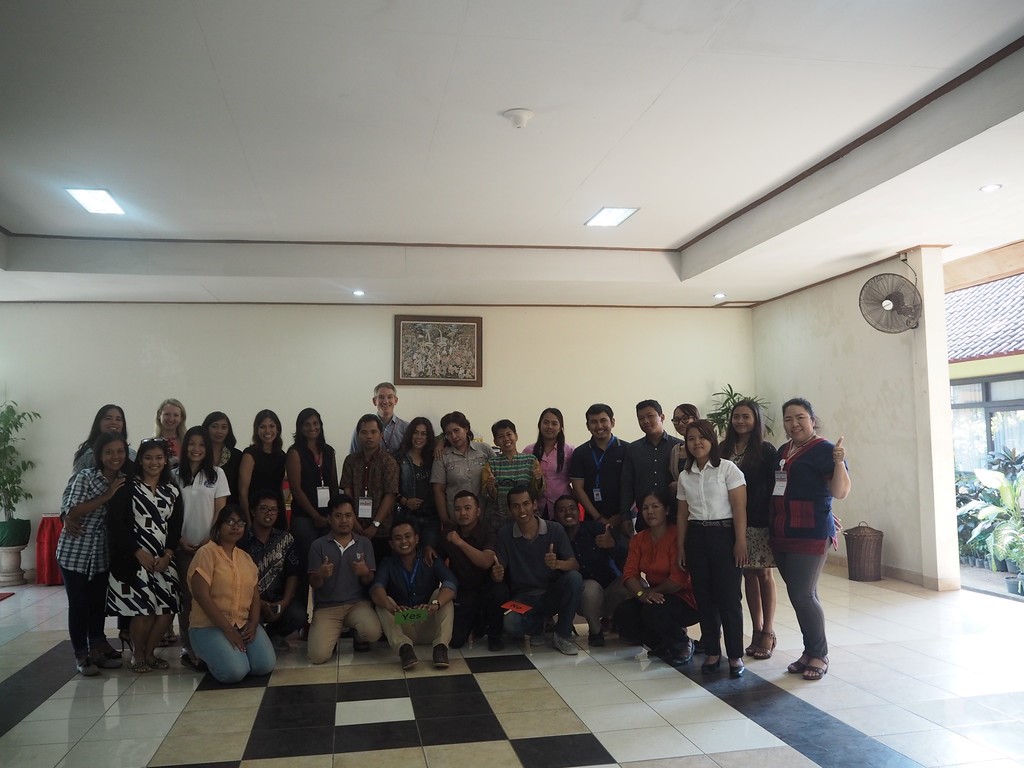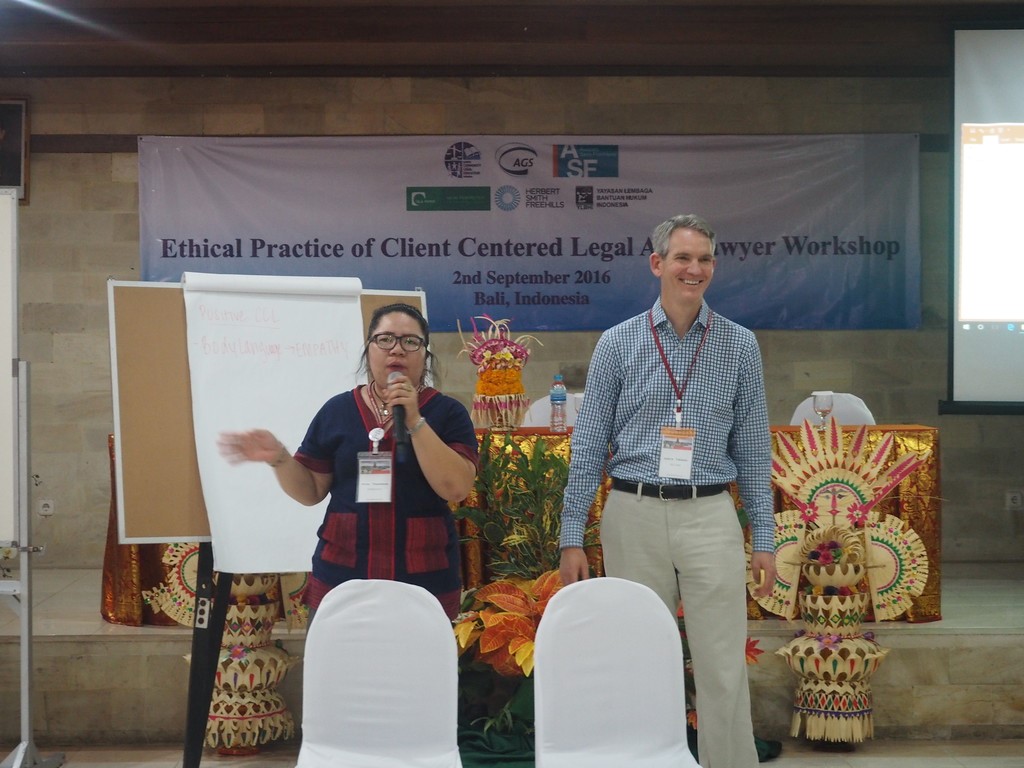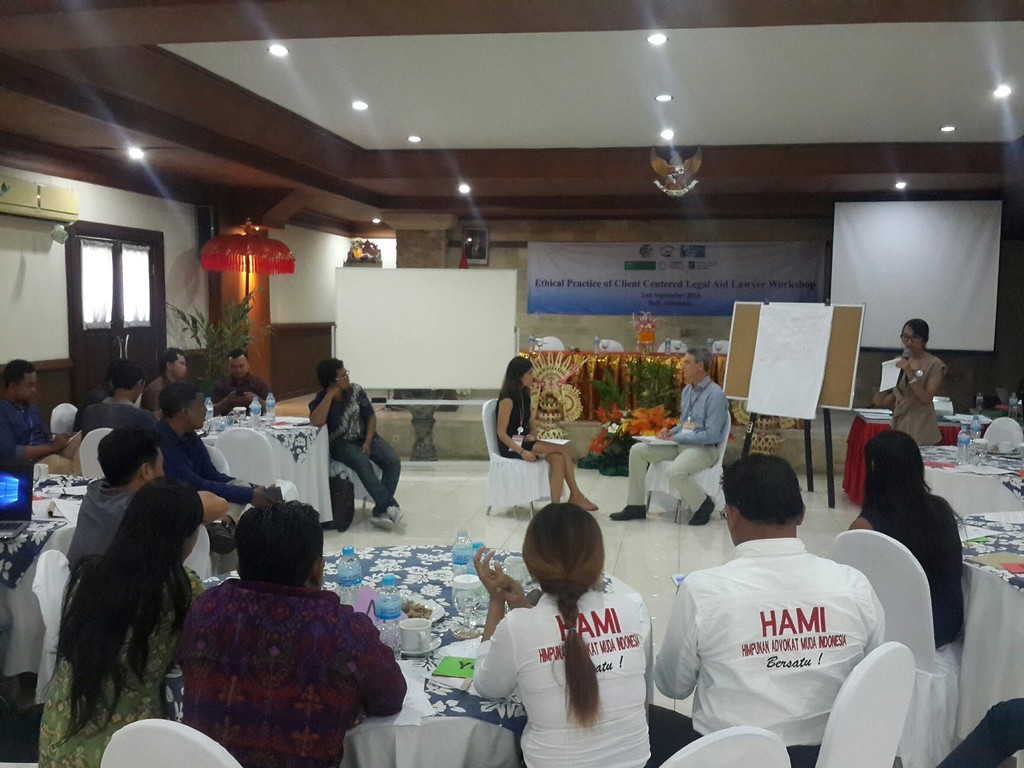After participating and attending the 5th Asia Pro Bono Conference in Sanur, Indonesia (on the island of Bali), several international trainers stayed for an additional day to give a workshop on client-centered lawyering to local legal aid providers. The workshop was a huge success and a lot of fun.
From the 29th August – 1st September, 320 participants from over 30 nations attended the 5th Asia Pro Bono Conference. The conference brought together legal service providers from around the globe to share ideas, participate in workshops and advance the pro bono movement in Asia. The conference was founded and is run by BABSEACLE in partnership with many other legal entities, including my law firm DLA Piper and its international pro bono arm, New Perimeter.
Since we were already in Indonesia, we could not pass up the opportunity to add on an additional day of training for the local legal providers that work so hard to ensure that those who cannot afford legal services are represented. To that end, on 2 September, several of us worked with BABSEACLE to hold a workshop on client-centered lawyering at the Puri Dalem Hotel, Sanur, Indonesia. I was joined by Suzanna Brickman (also of DLA Piper/New Perimeter), Miriam Chinnappa of Avocats Sans Frontières (ASF), Irina Zaitsevaof the law firm Herbert Smith Freehills, and Nattakan Chomputhong (“Ann”) of BABSEACLE.
The Participants
When we arrived on the morning of the training, we found that over 30 participants had arrived early and were eager to begin. Right then, we knew it would be a great day.
Attending the workshop were legal providers from the local legal aid office. Rather than simply sending attorneys, the legal aid office also sent paralegals and administrators. This diverse group offered various perspectives which allowed for a rich discussion about how to best serve the client.
The Workshop
Client-centered lawyering is a process designed to empower the client and foster the client’s engagement in the legal process. The desired outcome of client-centered lawyering is to maximize the client’s autonomy. After all, it is the client that should ultimately make the decisions, not the lawyer.
While this is an easy concept to discuss, it is often hard to practice because clients are looking to legal providers for answers and many legal providers are trained to simply provide what they think is the right solution.
Throughout the course of the day, we were able to work through many of these obstacles to get a more comfortable understanding the client’s situation, motivations and desires. Through a combination of presentation, role play and group discussion, the participants were provided with tools to assist them in the future to better understand where the client is coming from and what a client really wants from a legal provider. Topics included communications skills, listening skills and dealing with clients experiencing trauma and anxiety. The use of role play was particularly effective in this workshop.
Final Thoughts
 We concluded the day sitting in a circle and discussing what participants learned. It was heartwarming to hear the desire of the participants to go back and start applying what they learned with their clients. The participants also suggested that having a client fill out a written form before talking to the legal professional could be impersonal and intimidating and they addressed a need to find a solution for this. I left with the real sense that the client intake process would become much more client-centered going forward.
We concluded the day sitting in a circle and discussing what participants learned. It was heartwarming to hear the desire of the participants to go back and start applying what they learned with their clients. The participants also suggested that having a client fill out a written form before talking to the legal professional could be impersonal and intimidating and they addressed a need to find a solution for this. I left with the real sense that the client intake process would become much more client-centered going forward.
By Andrew P. Valentine, DLA Piper / New Perimeter, United States


